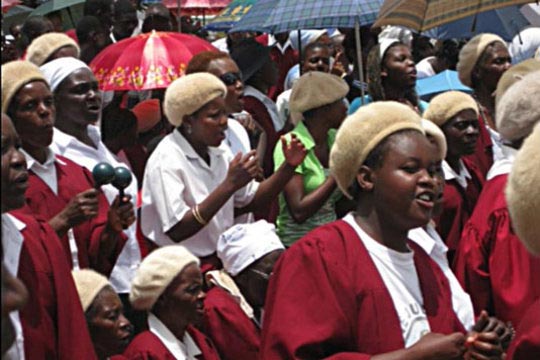
THE festive season comes with numerous experiences for various people, some of them good things to always remember in life while others are bad. REPORT BY JENIFFER DUBE
After escaping death by a whisker when I was involved in a car accident last November on my way to Irisvale in Matabeleland South, where my family is settled, I decided I was safer visiting my original rural home for the December holidays.
My original rural home, Mthoniselwa in Matabeleland North’s Nkayi District, has changed a lot since my last visit in December 2009.
One of the positive changes is that almost everyone in the village now speaks openly about their HIV status.
This was a taboo.
“HIV stigma and discrimination is a thing of the past here,” Ntokozo Mlilo said. “Those of us who take [anti-retroviral] drugs are no longer scared of what people may say when they see us taking them because unlike in the past, people in this village now understand that to be HIV-positive does not mean death and that having it does not necessarily mean that one is of loose morals.”
This was achieved through the efforts of the Free Presbyterian Church of Scotland that helped in fighting stigma in the community by opening a mobile clinic in the village.
The clinic, which falls under the church’s Mbuma Mission Hospital, is open to the community once every month.
- Chamisa under fire over US$120K donation
- Mavhunga puts DeMbare into Chibuku quarterfinals
- Pension funds bet on Cabora Bassa oilfields
- Councils defy govt fire tender directive
Keep Reading
“When the clinic started in March 2011, we were told that it was meant to exclusively bring relief to those of us who were taking [ARV] drugs as we previously had to walk 11km every month to collect the tablets at Mbuma Mission Hospital,” Sinikiwe Nkomo said.
“The community would be called for monthly meetings where we were taught about HIV and Aids then those of us who take the tablets would be given our monthly allocations.”
The services have now been extended to pregnant women and those with infants requiring frequent visits to the clinic. The clinic is a makeshift mud and grass structure built by the community.
Previously, some expectant mothers went into labour while others delivered without visiting any health institution as Mbuma Hospital is too distant for many.
With the changing climate, the community has also embraced a new farming method — gatshopo (conservation farming).
In the past, people in our area would not till their land after the first rains as they believed it was taboo.
Everyone would wait for the second rains and they would use ox- and donkey-drawn ploughs to till their land.
However, some non-governmental organisations have convinced them that the first rains were not taboo and encouraged them to use them for farming.
I was surprised to see that almost every homestead now has a small field set aside for conservation farming.
Everyone now tills after the first rains, puts manure in the holes they dig to preserve moisture and wait for the second rains.
Once the second rains come, they go back to the fields and dig again. This time putting seed, usually maize, in the holes and start weeding around them.
Unlike in the past where weeds would be racked away under the belief that they would “wake” up again if left near plants, the villagers now use them for mulching.
Whenever they meet, villagers now ask each other how their gatshopo is doing.
Most people I spoke to say the method had resulted in higher yields but it also means more work, as it requires that they always tend to the field, making sure there are no weeds near the plants.
I discovered that many people were still using the bush latrine system, making it unhygienic to have huge numbers of people gather where there are no ablution facilities.
Fearing disease outbreak, several makeshift structures for various churches have been built at the village centre, and each has a toilet.
So serious is the hygiene campaign that a grocery shop which was operating without a toilet was recently forced to shut down.
The water situation too has improved in this dry village.
Several homesteads have drilled wells, most of them more than 30 metres deep.
But I was dismayed by the state of my former school, Mthoniselwa Primary.
Parents I spoke to said they now feared that the roof for the classrooms would one day collapse and kill their children.
Even the walls, some said, were an equal threat to their children’s lives.
During the rainy season, some teachers are forced to use their houses for lessons as they also fear for their lives in the classrooms.
I hope when I go back things would have changed for the better. Villagers no longer worship at homesteads
People of Mthoniselwa are now very spiritual.
In the past, only a few subscribed to Christianity, with the dominant churches being “iPostoli” (Apostolic Faith churches), Roman Catholic and Zion Christian Church (ZCC).
But now several other churches, including the one which runs the clinic, have been established.
Many people, including those who were previously labelled witches and wizards now worship with others in churches.
The villagers also no longer worship in the homesteads or bush following teachings about the high risk of such diseases as cholera where a large number of people are gathered.











